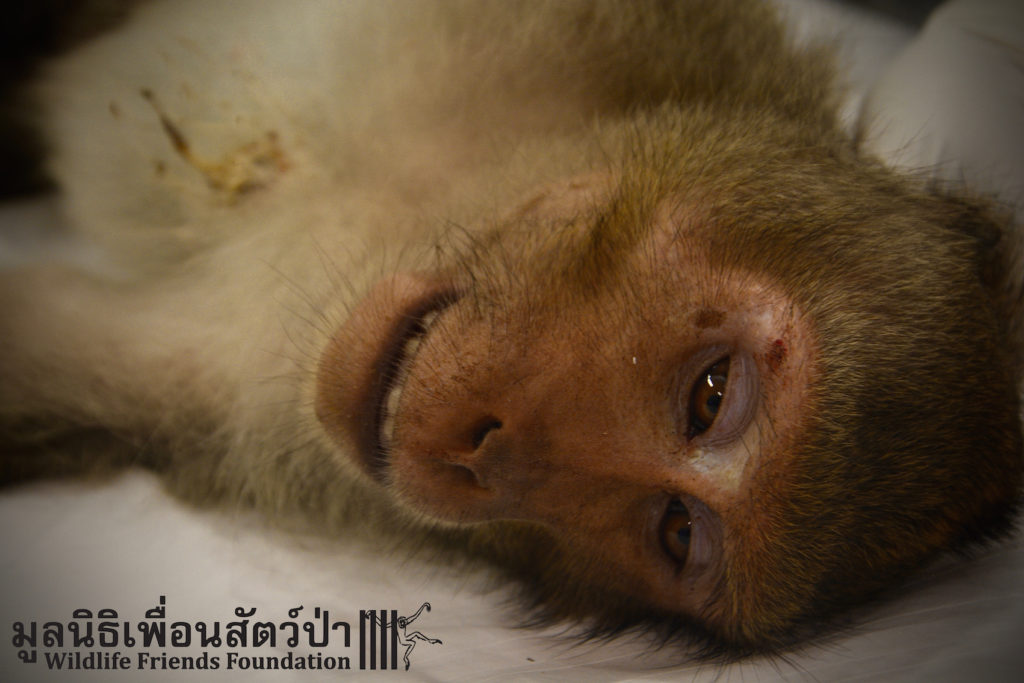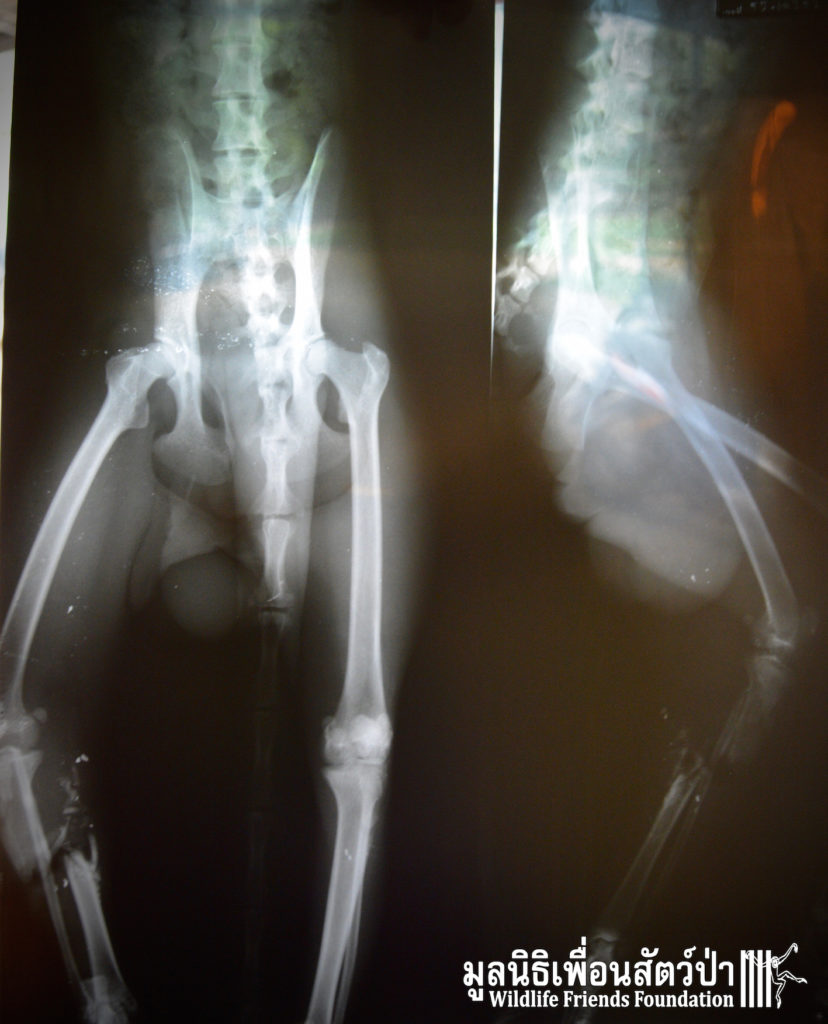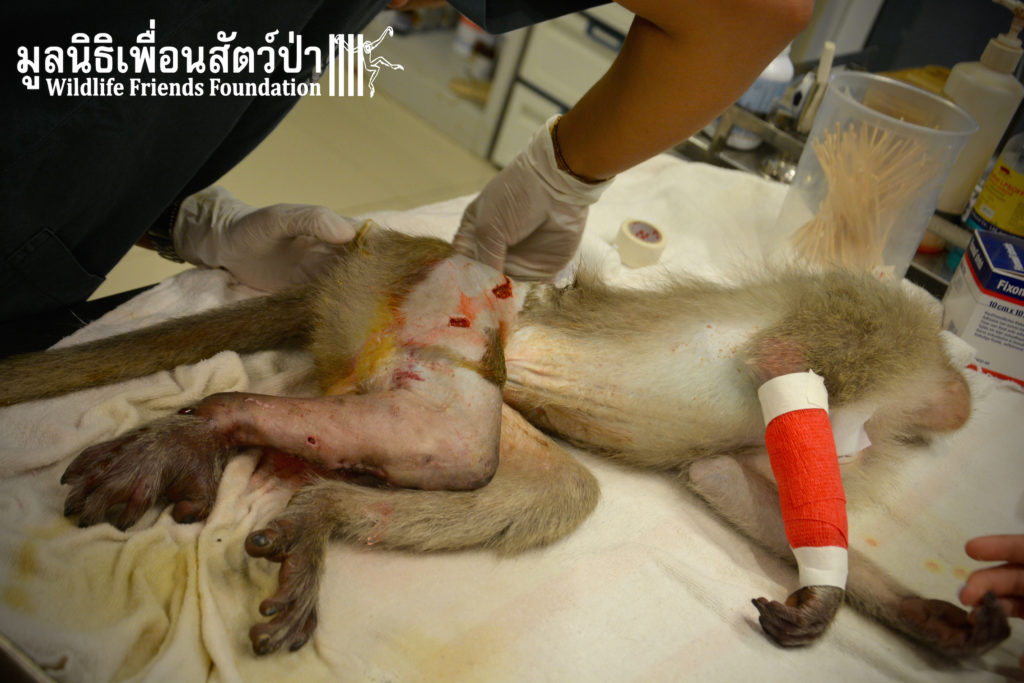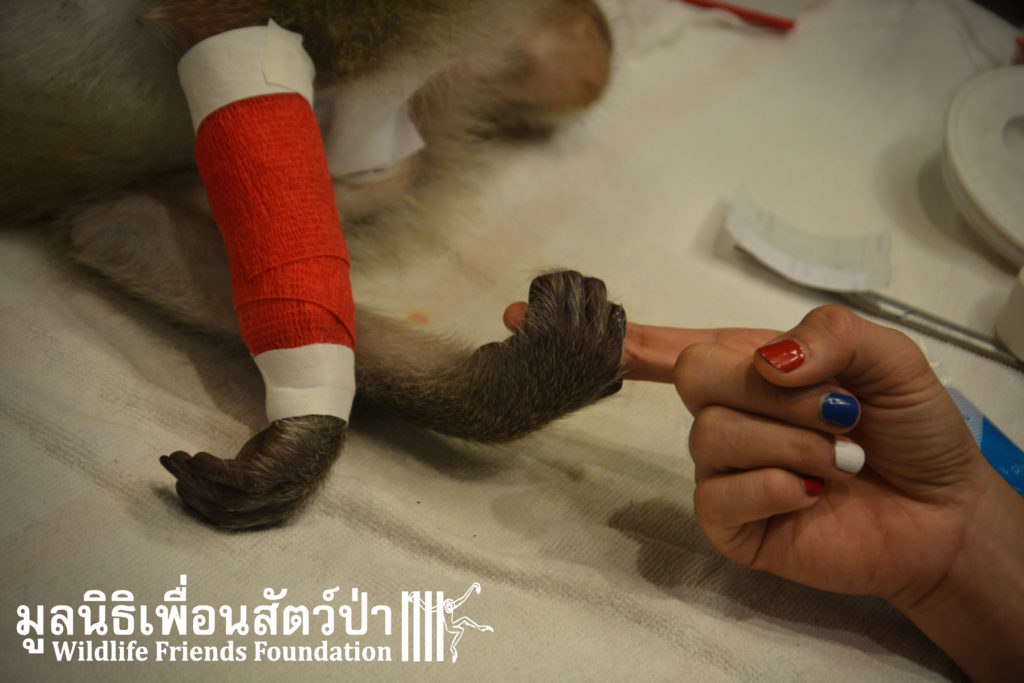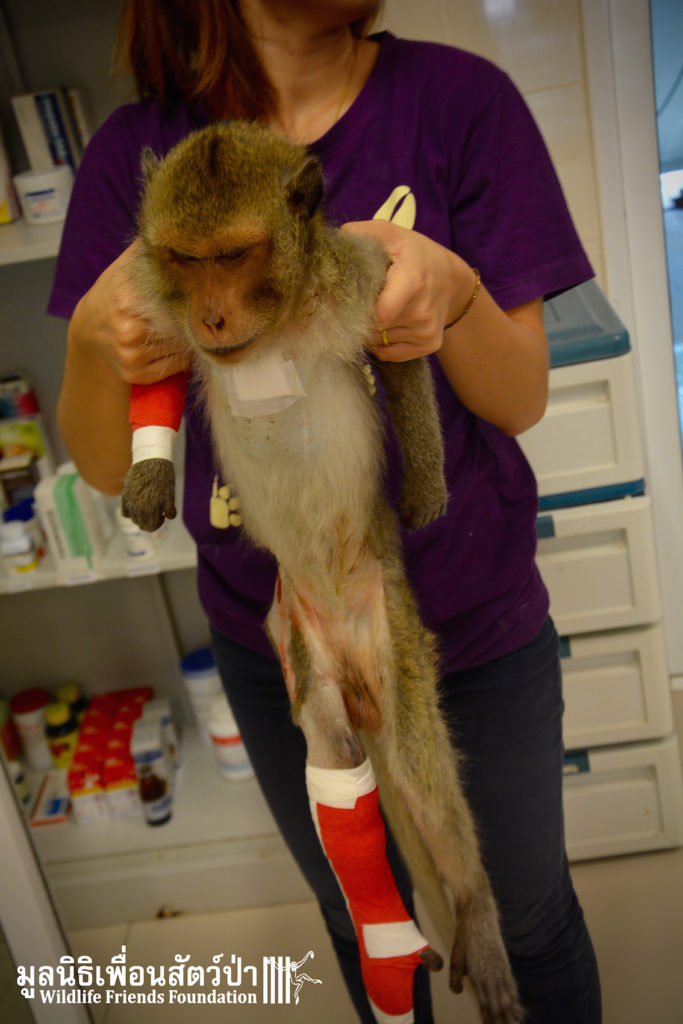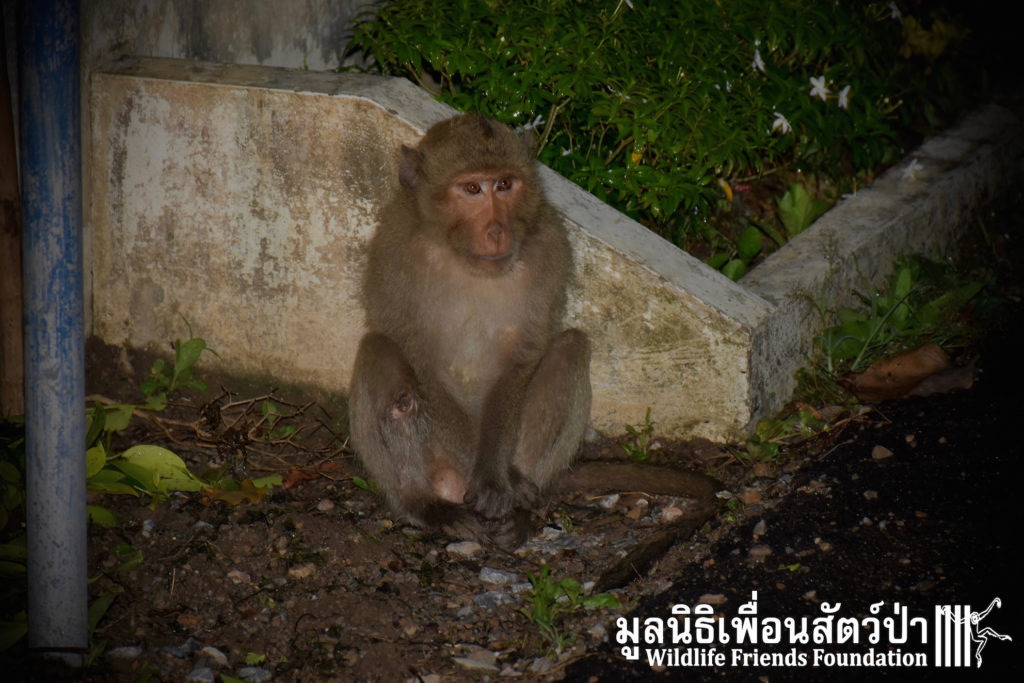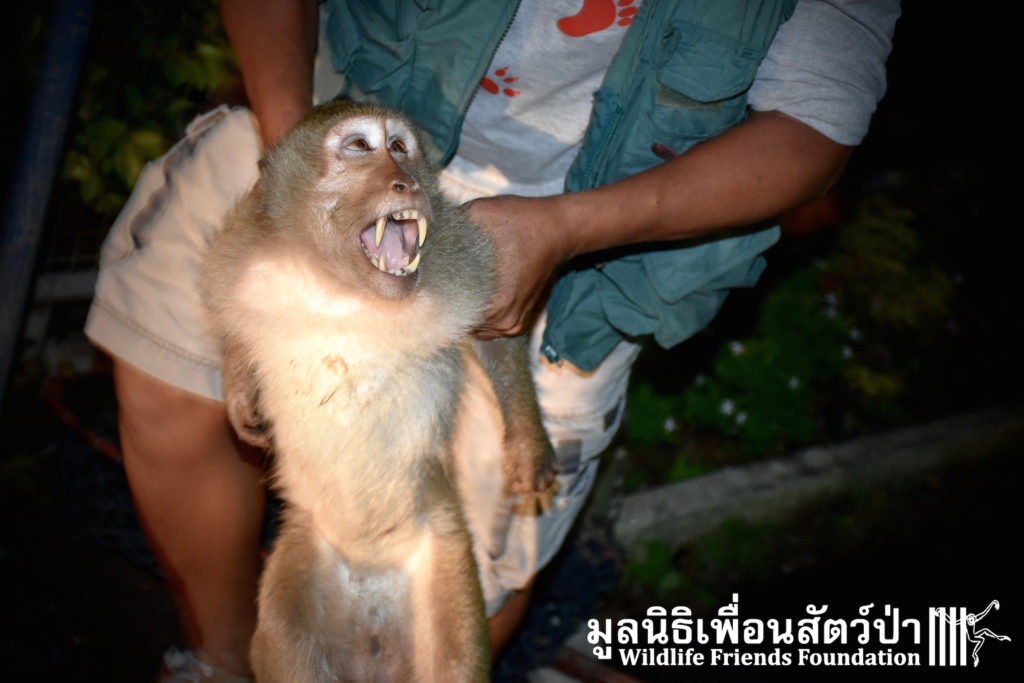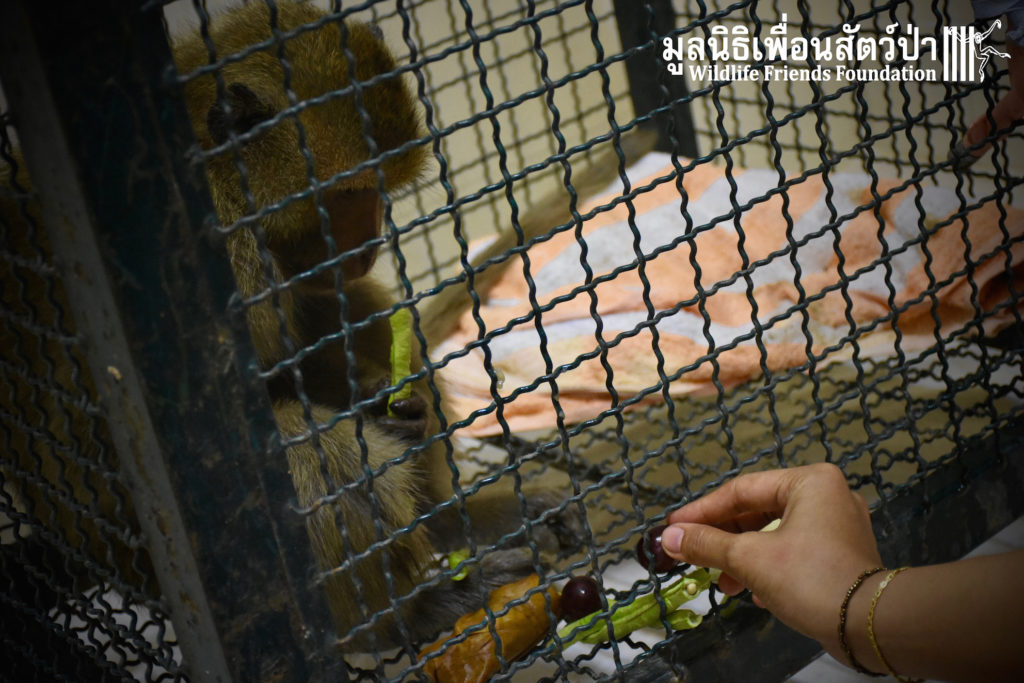A big step forward! An MOU has been signed with the coconut industry and authorities to phase out monkey labour and exploitation in coconut harvesting.
Wild Long-tailed Macaque Rescue
Last week the WFFT Wildlife Rescue Team headed out to Phetchaburi to investigate a report from a concerned local about a young male long-tailed macaque (Macaca fascicularis) that had been hit by a car. Upon arrival to the scene, the team found a young male that had sustained serious injuries huddled at the side of the road. After the initial medical examination it was believed that the macaque had taken most of the impact on the right side of his body; suffering a possible broken leg and large open wounds on his legs and forearms, which left the bone exposed.
The long-tailed macaque is listed as Least Concern (LC) by the IUCN Red list of Threatened Species, in view of its wide distribution, presumed large population, tolerance of a broad range of habitats, occurrence in a number of protected areas. Although it is under heavy hunting pressure for the pet trade, meat, sport and trophies, this is not considered a major threat to the species overall. Females are often taken into breeding facilities and males are exported internationally primarily for use in laboratory research. They are regularly persecuted as pests. Habitat loss is also a localised threat, but the species can persist in a variety of habitats and very adaptable.
He was taken for an X-ray to allow a proper assessment of his injuries. The X-ray results confirmed the WFFT Vet Teams previous prognosis of broken bones, with a fracture on his lower right leg and upper right arm. We have named him ‘Lillo’. Our dedicated team performed surgery on Lillo, inserting pins to encourage the bone to heal. We will continue to work to help the young monkey regain strength at the WFFT Wildlife Hospital and we hope to see him make a full recovery in the coming months. Hopefully one day soon little Lillo can return home.

